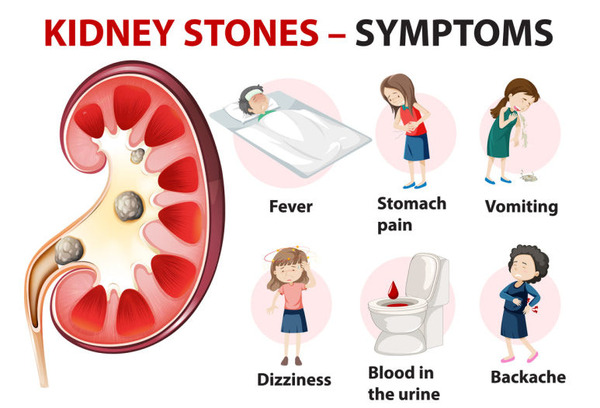Calcium oxalate kidney stones form when certain substances in urine become too concentrated and crystallize. These hard depositis, also known as renal calculi, can develop in the kidneys’ calyces or ureters, causing significant discomfort and health issues. Understanding the causes, symptoms, and prevention methods of calcium oxalate stones is crucial for maintaining optimal renal health.
Contents
Causes and Risk Factors
The formation of calcium oxalate stones primarily results from an imbalance of minerals in the body. While genetics can play a role in kidney stone formation, nutrition and lifestyle factors contribute significantly to stone development. Dehydration is a major risk factor, as it leads to concentrated urine, creating an ideal environment for crystal formation. Additionally, an imbalanced diet high in salt, oxalate-rich foods, and animal proteins can exacerbate the risk of developing these painful renal stones.
Dietary Approaches to Prevention
Preventing calcium oxalate kidney stones involves a multi-faceted approach, with diet playing a crucial role. Adequate hydration is paramount, as it helps dilute urine and prevent stone formation. Consuming calcium-rich foods, particularly dairy products, can bind with oxalates in the intestines, reducing their absorption and lowering the risk of kidney deposits. Citrus fruits, such as lemons and oranges, contain citrate, which inhibits stone formation. However, it’s essential to be mindful of high-oxalate foods like spinach, potatoes, beets and almonds. Excessive tea consumption can also increase oxalate levels in the system.

Lifestyle Changes for Stone Prevention
Beyond dietary modifications, lifestyle changes can significantly impact kidney stone prevention. Reducing sodium intake helps prevent excessive calcium excretion in the urine. Limiting animal protein consumption is also beneficial, as excessive intake can increase the risk of renal calculi. Maintaining a healthy weight through proper diet and regular exercise is another crucial factor in preventing the formation of these urinary crystals. Learn more about Ritual Multi Vegan Supplements
Recognizing Symptoms and Seeking Treatment
The primary symptom of calcium oxalate stones is severe abdominal pain, typically located in the side. If you experience this symptom, increasing water intake may help pass the stone. However, it’s crucial to consult a medical professional for proper diagnosis and treatment. Various treatment options exist for calcium oxalate stones, ranging from pain management with over-the-counter medications to more advanced medical procedures. Transform your Health with Ora Organic
Advanced Treatment Options
For larger or more problematic stones, doctors may recommend procedures such as Extracorporeal Show Wave Lithotripsy (EWSL), an non-invasive technique that uses shock waves to break large stones into smaller, passable pieces. Ureteroscopy, an invasive process involving a camera inserted through the urethra, allows the stone removal or fragmentation. In cases of largers stones, Percutaneous Nephrolithotomy (PCNL) may be considered, involving surgical intervention to remove or breat apart the renal stones.
Preventing calcium oxalate kidney stones involves a comprehensive approach to health and wellness. By implementing dietary changes,, adopting healthy lifestyle habits, and seeking appropriate medical intervention when necessary, individuals can significantly reduce their risk of developing these painful renal calculi. Regular check-ups and open communication with healthcare providers are essential in managing and preventing neprolithiasis, ensuring optimal urniary health and well-being.
Barry Schustermann
Follow me on X @BarrySchust
Follow me on Facebook @Barry Schustermann



